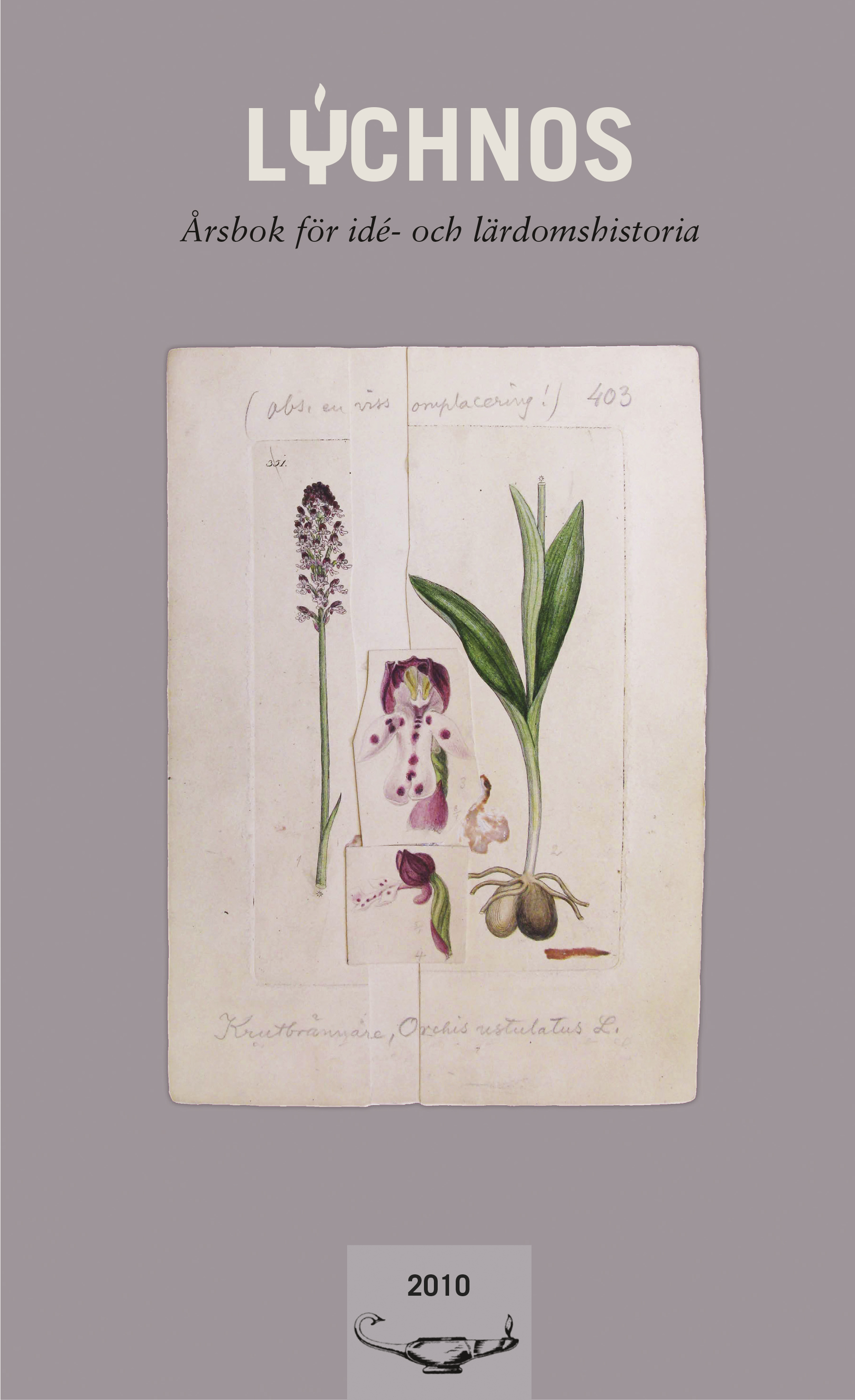To read Egyptian
J. D. Åkerblad and oriental studies during war and invasion
Abstract
The article traces Johan David Åkerblad’s contributions to one of the 19th century’s most famous scientific triumphs, the decipherment of hieroglyphs. Egyptology often counts its birth from 1822 when hieroglyphs first could be read; the focus here are on the preceding decades of Egyptian studies. Åkerblad, the son of a mirror-maker, was born in Stockholm in 1763. That he was born a commoner and supported radical political ideas was an important factor in his less than successful Swedish career. He was a precocious oriental linguist who already before leaving Uppsala university was well versed in classical languages as well as in Arabic and Turkish. Throughout his diplomatic postings in Constantinople between 1784 and 1797 he travelled widely in the Eastern Mediterranean. He knew the local languages well enough to travel in disguise.
While in Rome during the French occupation in 1798–1799 Åkerblad studied Coptic. He was invited to join the French invasion of Egypt in 1798 on the grounds of his exceptional knowledge of languages, but chose to decline. He was an acute observer of European expansionist intentions and commented ironically on both French and British ambitions in the Eastern Mediterranean. In Paris in 1802 he was given access to a print of the Demotic inscription from the Rosetta stone that had been found in the Nile Delta. The same year he published a treatise on the Demotic inscription and become instantaneously famous in orientalist circles and was in 1803 elected member of the Institut National (today’s Institut de France). Åkerblad managed to read some signs and words in the Demotic text and proved that ancient Egyptian was the ancestor of Coptic. He was, however, hindered by his conviction that Demotic was purely phonetic; this hurdle was only overcome when Jean-François Champollion completed the decipherment of hieroglyphs. It was then understood that the Demotic script was a mixture between phonetic and logographic signs. Åkerblad was ordered to leave Paris when the Swedish government broke off diplomatic relations with France in 1804, but instead of returning to Sweden he went to Italy where he died in Rome in 1819. During his adult life he only spent a few years in Sweden.
The article argues that pre-decipherment Egyptology can not be divided from the turbulent decades in the wake of the French revolution. The stages in the decipherment coincided almost perfectly with the Napoleonic wars and both international and national politics played a pivotal role in the development of oriental and Egyptian studies. Åkerblad continued his Egyptian studies in Italy and corresponded with the French orientalists Silvestre de Sacy and Champollion and the British polymath Thomas Young. Nevertheless, he never managed to publish his Egyptian treatises and it is evident how national goals of academies and learned societies were highly influential in both science in general and for individual careers. Early Egyptology has sometimes been used as an example of international scientific co-operation, a claim refuted here. It is further argued that the history of Egyptology may benefit from being contextualized within a larger context of oriental studies. By briefly discussing the debate concerning Edward Said’s concept of ”orientalism”, as well as referring to recent Eastern Mediterranean historiography, such a context is suggested.
Downloads
Published
Issue
Section
License
This work is licensed under a Creative Commons Attribution 4.0 International License. The copyright for the work published in Lychnos remains with the authors.


